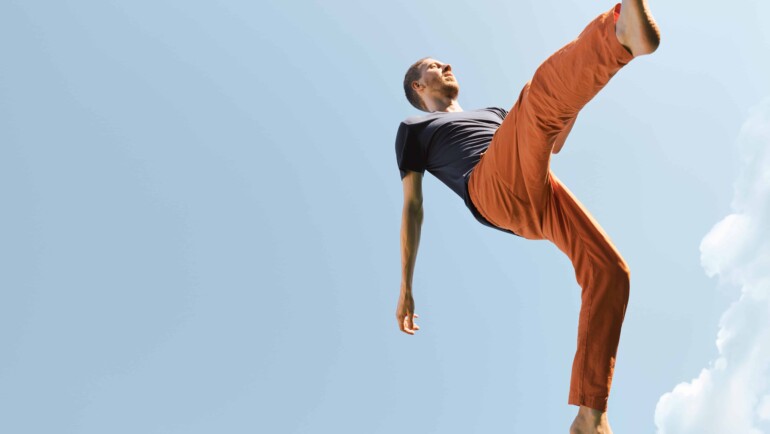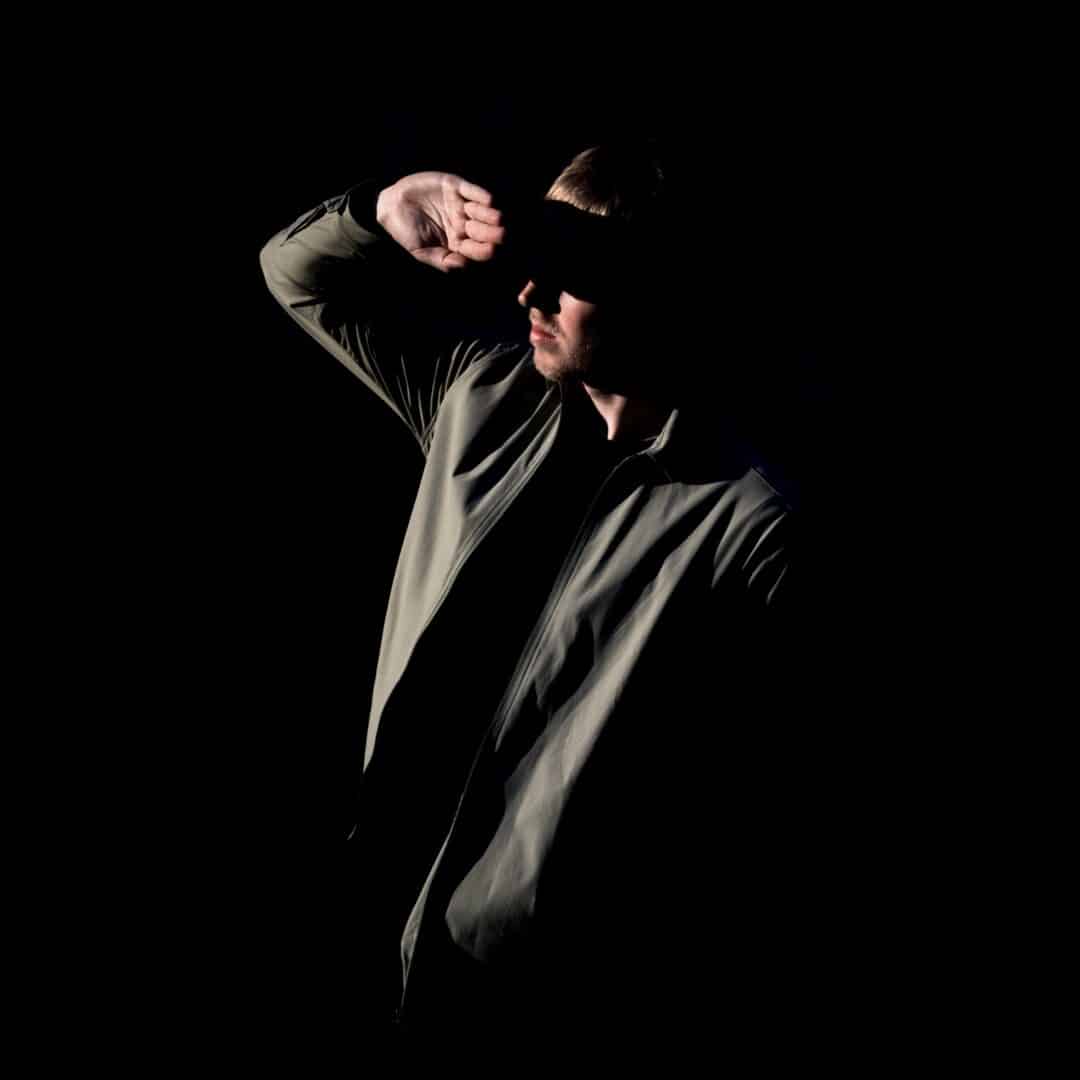
It could not have been wilder after the last record, says DORIAN CONCEPT. The Viennese musician and producer last released an album in 2018. His fourth album has just been released on the US label Brainfeeder: “What We Do For Others” decelerates after the hyperactive-maximalism of the predecessor – and becomes a companion album.
Your new record is surprisingly … gentle! As if you would lie down to sleep after the excitement of the predecessor, “Nature of Imitation”.
Dorian Concept: The sleeping part is just right! On “Nature of Imitation” everything was illuminated, the sounds were clear and brilliant. On the new record there is less brightness. It’s a nocturnal album. Also because it’s emptier.
After the last album …
Dorian Concept: I reached the point where I couldn’t go any further. Nothing wilder would have been possible.
Yes, you had exhausted the possibilities – not only technically, but also compositionally.
Dorian Concept: That’s why the approach to playing the keys changed. On “Nature of Imitation” I often played very short segments and strung a lot of loops together, which created collage-like compositions. On the current album, I played long takes. I was fumbling in the dark, looking to see what could come out of these long arrangements.
And?
Dorian Concept: For me, splinter factions emerged from electronic music. I no longer felt the need to emphasize technique and to focus on proving my own abilities, but to make soulful music.
“‘Nature of Imitation’ and ‘What We Do For Others’ are like siblings.”
You showed the technical skills anyway. Who else would you have wanted to prove something to?
Dorian Concept: It’s weird: before I produced the last album, I didn’t imagine I would produce it like this. As a teenager, I always wanted to understand how the techniques worked. Polyrhythms, seven-eighths beats; I had a drive towards the technical – and the music sounds like that familiarization. “Nature of Imitation” came about for the first time, not so much from learning, but from the freedom to come up with weird ideas and turn them into songs. That hasn’t changed since then. On the contrary: I try to think less and less when I make music. That’s why “Nature of Imitation” and “What We Do For Others” are like siblings.

That’s exactly what I mean: you have proven the technical skills. Especially for yourself. Maybe muscle memory is a good term to describe your freedom. Your body has internalized the technique, you can use it freely without thinking about it.
Dorian Concept: That’s right, it’s like riding a bike: Once you know how to do it, you never unlearn it. I acquired these skills through my persistence as a teenager. I’m still grateful for that – and also a little surprised. After all, there were no musicians in my family to give me direction. Nevertheless, when I was 15, I wanted nothing more than to make music, perhaps because at that time and in school I was hardly interested in anything else.
Where you were with …
Dorian Concept: Cid Rim and The Clonious, at school, yes. We were interested in the intersection between electronic music on labels like Warp Records or Ninja Tune and instrumental jazz music, but also hip-hop and funk. We were DJing, learning instruments and producing.
“The way I play synth today […] resembles the expression of a sax player.“
The first instrument you learned was not piano, but the saxophone.
Dorian Concept: That’s right. When I heard Coltrane’s “After Blue,” I knew: I want to play soprano saxophone! The way I play synth today – with less harmony and chords, but more melody – resembles the expression of a saxophone player. What you normally do with your mouth, I do with pitch wheel and modulation.
That’s exciting.
Dorian Concept: Yes, some people really hear flutes on the recordings, but they are synths! But I notice that my music is changing back into the aesthetics of wind instruments. An aesthetic that I got to know in my youth. That’s when I first became interested in free improv. I even went to a Lol Coxhill concert at Miles Smiles. The people were all over 50 and looked at me like I was lost. It was the extended techniques that fascinated me – the moment when you hack the saxophone, it just doesn’t spit out normal tones anymore.
The tones of the in-between as a hack of the saxophone.
Dorian Concept: I always asked myself the question: How can the instrument be hacked?
When people watch you, they hear and see: You hacked the synth. But, how did you find the way in?
Dorian Concept: Never in a technical sense. So I never unscrewed the synth and re-soldered the cables. It was more about the aesthetics for me. For example, a random modulation can run while I’m playing – so everything sounds a bit out of tune. Meanwhile, I lightly edit the pitch wheel to create random microtonalities. In this way, the synthesizer can be worked like the keys of a saxophone.
You imitate the technique and transfer it to a new instrument.
Dorian Concept: Clemens [note: Bacher, aka Cid Rim] once made an interesting observation. We used to play Mortal Combat on the Playstation. You had to memorize complicated combos on the controller – and execute them with one thumb. That may sound funny, but: I used a lot of that for my playing.
That’s the hack, you change the context of the application!
Dorian Concept: With video games, you have a competitive component that goes on subconsciously. The little milestones are important to learning a technique. It’s no different with modulating. I used to call it the nervous left hand. Now I see it as a dance, the steps of which I no longer do consciously.
Your hand dances uncontrollably?
Dorian Concept: Yes, that’s why I can’t use the ego too much as a pilot. At the same time, I don’t practice anymore, except when I’m making music anyway. Especially with the new album, it’s more observable: What I used to think of as sketches, I now wanted to understand as something that comes from a deeper place in me. That means: I don’t put myself above the sketch, but rather value it.
By doing this, you put them in the foreground and don’t mimic them to produce something more perfect.
Dorian Concept: Exactly! I emphasize the sketch because art is ahead of man and his cognition. Sometimes what you want to find is already in you before you find the language for it. I recognize this in my career path. My first release was in 2004, internationally I’ve been on the road since 2007. Nevertheless, I never made music to be successful. Rather, it came from an inner drive. I had to make the music for myself.
You never wanted to be successful, but you play keys for FlyLo or MF Doom. Another might have tried to force himself in that direction and never would get there. You might have been there before you even knew it.
Dorian Concept: That’s why goals in the outside world can be dead ends. The intention changes, the approach to music becomes a different one if you want to succeed. In contrast, you have to feed the parts in you that lead back to the original interest – or at least search for them.
“it’s a companion album that focuses on its own process of creation.”
How did you go from searching to finding?
Dorian Concept: I’ve asked myself that question so many times that it feels clearer. With the last albums, I often had the feeling of finishing a film. In that, I recognize a tension now. With “What We Do For Others,” on the other hand, I was already thinking during production about what I was going to do when it was finished. That’s why it’s a companion album that focuses on its own process of creation.
The pieces depict what mood you were in at the time of their creation. They are recordings in the moment.
Dorian Concept: I’ve always shied away from talking about feelings in my music because I didn’t want to conform to any cliché. For the new album, though, I drew from strange feelings. They were steps into the dark for which I dabbled in the unconscious – inner journeys that led me through the ruins of my own expectations. Perhaps these journeys show themselves most strongly in the sparse numbers. They leave the euphoria and move to outer places that have already been abandoned.
It’s like jumping out of the spotlight. You’re suddenly standing in the casted shadow, looking at the light from the darkness.
Dorian Concept: Yes, it was a step sideways from the in-your-face maximalism with which I am sometimes associated. Looking back, I’m aware that pieces like “Trilingual Dance Sexperience” mapped a need for connection. After all, there are few things more beautiful than seeing the audience go wild to a number like that. Still, I’ve wanted to do something quieter for a while. I long for an everyday life that receives admiration in the unexciting. That’s why with “What We Do For Others” I’m highlighting the quiet moments, not the peaks.
To what extent is the expectation from the outside world – you mentioned it – a burden?
Dorian Concept: The outside world needs an anchor. I can’t exempt myself from that, because I associate certain people with certain qualities as well. Still, you can break with expectations. “Selected Ambient Works” by Aphex Twin had little to do with “Come To Daddy,” which he later produced. It’s a play between polarities. My releases are meant to function similarly, they are counter-movements to what came before. But that means extra challenges for my career and those people who work with me.
“MAYBE I SEEK UNCERTAINTY BECAUSE I DON’T WANT TO KNOW WHAT I WANT TO ACHIEVE.”

Still, you stand behind the decisions because you know you have to.
Dorian Concept: What excites me about making music is how it stays exciting for me. In doing so, I definitely reflect on the privilege of my career: I don’t want to seem like I’m putting it at risk lightly. However, I have noticed that I would never have gone down this path if I had played safer from the start. The less I plan, the more interesting things come up.
You’re groping …
Dorian Concept: … In the dark because I don’t know where it’s going next! That’s hard to share on social media …
Because, there, only the direct path counts as output and not the detour as uncertainty.
Dorian Concept: Maybe I’m looking for uncertainty because I don’t want to know what I want to achieve. Simply so that I don’t miss out on what I don’t yet know could surprise me.
Well, now it’s getting philosophical: Do we allow the danger of chance or do we cast a safe net?
Dorian Concept: A net leads to clarity, but also to rigidity. That’s why I’ve played some of the shows I’ve recently filled in on, short notice, almost completely freely. I just went on stage with a Roland SH-101 and a looper and built the songs, live – without a prefabricated path, but with the potential to surprise myself.
And the audience! People honor the courage much more than if someone would just run the master track through.
Dorian Concept: Maybe people honor the surprise because they are entertained. They forget everything else. It always makes me think of that one Futurama episode where Bender comes to God and he tells him, “When you do things right, people won’t be sure you’ve done anything at all.”
Failure …
Dorian Concept: … Is all too human. It’s like a bad date – you remember it because good stories come out of it!
Today, everything is based on ratings and reviews: You experience the story in advance, before you could have experienced it at all. That eliminates any uncertainty, any good story.
Dorian Concept: If only the controlled version gets out, it seems inaccessible. Yet it is precisely the deviation from the plan that is exciting. Not only for the audience, but also for the person who is on stage, even if they consider it a mistake at that moment.
“my playing always swims a little.”
How has this thinking changed for you, starting from your early beginnings, through recordings for MF Doom and live performances with Flylo, to your current album?
Dorian Concept: I was on the studio team with Thundercat at the Red Bull Music Academy in Montreal in 2016. He’s an incredibly precise bass player, we built a track together. Out of the challenge, I wanted to play as tight as him, but noticed that my playing always swims a little. Thundercat said at the time, “That’s just you!” In the meantime, I can embrace my own feeling for melody and timing – my musical idiosyncrasies – much more strongly than before. After all, it’s like a personality development: you get older, in the best case you come to terms with who you are. What I once considered a deficit, I now recognize as a character trait.
“the producer in me is fading away, the live performer is getting more space.”
How did it develop in your case?
Dorian Concept: I’ve always felt the need to share what I do. In the beginning, there was harsh criticism. But looking back, it helped me that someone made it clear not to imitate Squarepusher anymore. Especially as a teenager, more direct criticism is more practical than exclusive affirmation. In the meantime, the producer in me is fading away, the live performer is getting more space.
You have always performed live, solo but also in the band of Flying Lotus.
Dorian Concept: Even with him, it was often the case that the band could improvize. He had confidence in what made sense to our ears.
It sounds almost like a conventional jazz formation – within which, certain motifs are allowed to fray.
Dorian Concept: Still, it’s not pure improvization. I describe myself more as a song hobbyist who uses the keys as a means of programming. I don’t use the mouse for editing when I get into the flow via the keyboard. Instead, I sometimes have YouTube videos running in the studio that I play over. In retrospect, you realize that distraction can bring an exciting layer to your own playing.
We’ve talked a lot about what you can do. Let me finish by asking: what else is going on for you on the keys?
Dorian Concept: Who knows, maybe after this album I’ll end up back on the laptop! The beauty of keyboard instruments – whether it’s the piano, synthesizer, or a midi keyboard – is that the results are always changing. For the current album, I used four or five synthesizers and a Korg workstation. It wasn’t always like that, and it doesn’t always have to be. This time it just fit.
Christoph Benkeser
mica – music austria is giving away 1×2 free tickets for the release concert (Porgy & Bess: Riemergasse 11, 1010 Vienna |17.11.2022, 20:30). If you are interested, please send an email to office@musicaustria.at until 13.11.2022 . Subject: “Dorian Concept, 17.11.”
Translated from the German original by Arianna Alfreds.
